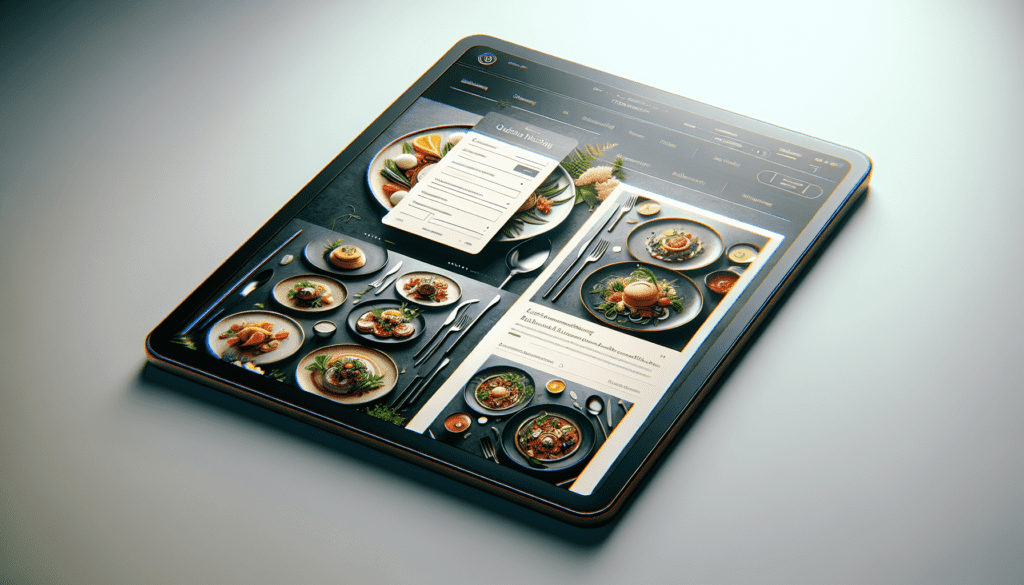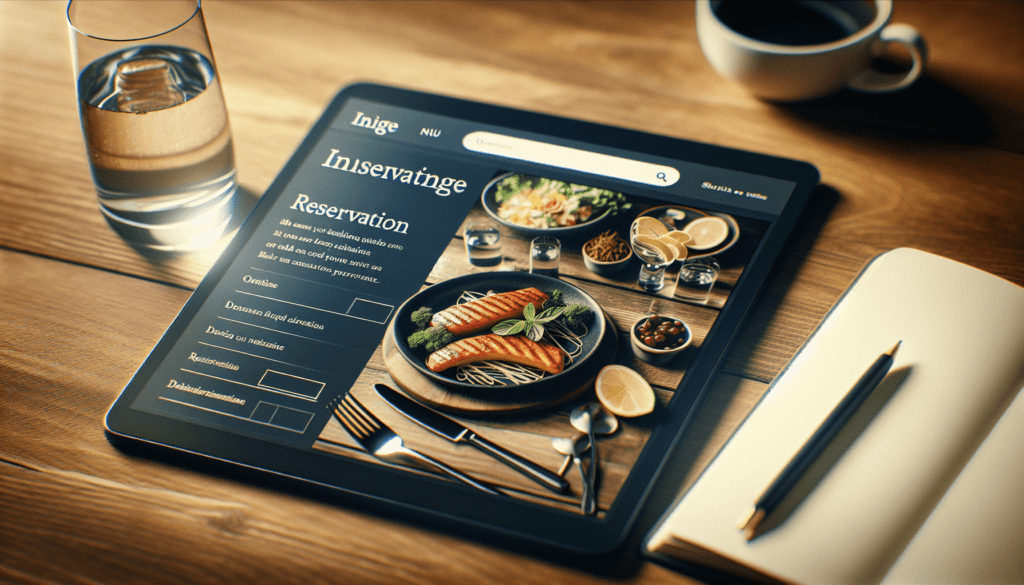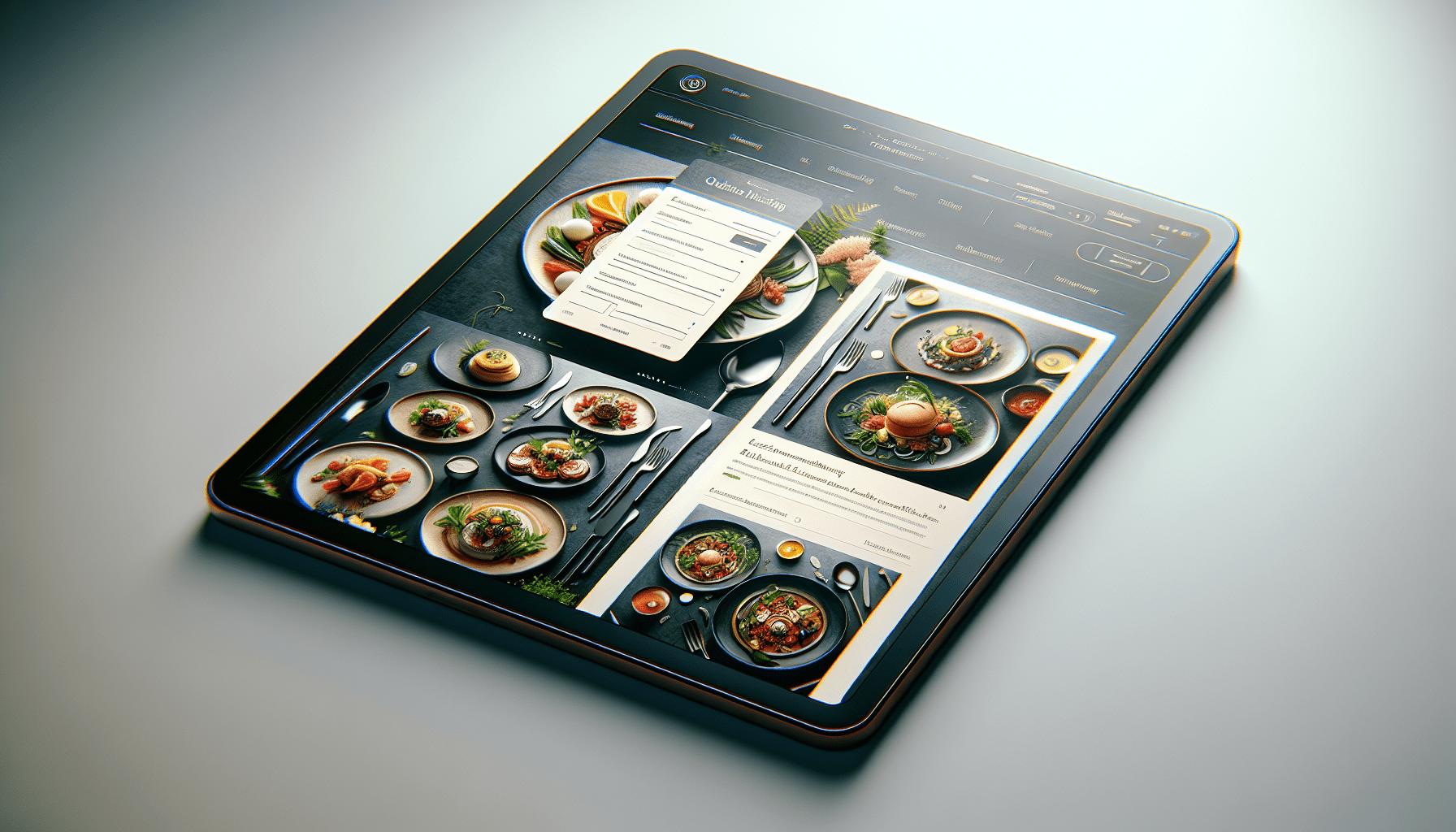Welcome to a comprehensive guide on creating a successful website for your restaurant’s online menu and reservation system! In this article, you will learn valuable tips and strategies to ensure that your website is visually appealing, user-friendly, and optimized for converting visitors into loyal customers. From designing an enticing menu layout to implementing a seamless online reservation system, we’ve got you covered. Let’s get started on boosting your restaurant’s online presence and customer satisfaction! Have you been thinking about creating a website for your restaurant but don’t know where to start? We’ve got you covered! Here, we will provide you with tips and tricks for setting up online menus and reservations to make your restaurant’s website a success.
Benefits of Having an Online Presence
Having a website for your restaurant can significantly benefit your business. Not only does it provide a platform for customers to browse your menu and make reservations, but it also gives your restaurant credibility and visibility in the ever-growing digital world.
Choosing the Right Platform
When creating a website for your restaurant, it’s essential to choose the right platform. There are several options available, from DIY website builders like Wix and Squarespace to content management systems like WordPress. Consider your budget, technical skills, and customization needs when selecting a platform.
DIY Website Builders
DIY website builders are user-friendly platforms that allow you to create a website without any coding knowledge. They offer templates and drag-and-drop features to design your site quickly.
Content Management Systems (CMS)
CMS platforms like WordPress are more customizable and offer advanced features for creating a unique website. They require some technical expertise but allow for greater flexibility in design and functionality.

Designing Your Website
The design of your restaurant’s website plays a crucial role in attracting and retaining customers. Make sure your website is visually appealing, easy to navigate, and mobile-responsive for customers browsing on their smartphones.
Visual Appeal
Use high-quality images of your restaurant, menu items, and ambiance to entice customers. Consider hiring a professional photographer to capture the essence of your restaurant and make your website visually engaging.
Easy Navigation
Ensure that your website is easy to navigate, with clear menu options and a user-friendly layout. Customers should be able to find information about your menu, location, hours, and contact details without any confusion.
Mobile-Responsiveness
With more people using smartphones to browse the internet, it’s essential that your website is mobile-responsive. This means that your site adapts to different screen sizes, providing a seamless experience for mobile users.
Creating an Online Menu
One of the most critical features of your restaurant’s website is an online menu. This allows customers to see what dishes you offer, prices, and any special promotions. Make sure your online menu is accurate, up-to-date, and easy to read.
Menu Sections
Organize your menu into sections like appetizers, entrees, desserts, and drinks to make it easier for customers to navigate. Consider adding labels for vegan, gluten-free, or vegetarian options to cater to a diverse range of dietary needs.
Dish Descriptions
Provide detailed descriptions of each dish to give customers a sense of what to expect. Include ingredients, cooking methods, and any special features to entice customers and help them make informed decisions.
Pricing
Be transparent about your pricing and clearly display the cost of each dish on your menu. Consider offering a range of prices to cater to different budgets and include any additional charges like taxes or service fees.

Implementing Online Reservations
Online reservations are a convenient way for customers to book a table at your restaurant without having to call. Implementing an online reservation system can help you manage bookings more efficiently and provide a better dining experience for your customers.
Reservation System
Choose a reliable online reservation system that integrates seamlessly with your website. Look for features like real-time availability, automated confirmations, and the ability to customize booking settings to suit your restaurant’s needs.
Reservation Form
Create a user-friendly reservation form that requests essential information like name, contact details, party size, date, and time. Keep the form simple and easy to fill out to encourage customers to make reservations.
Confirmation and Reminders
Send automated confirmations to customers once they make a reservation to let them know their booking is secure. Consider sending reminders closer to the reservation date to reduce no-shows and provide a positive booking experience.
Promoting Your Website
Once your restaurant’s website is up and running, it’s essential to promote it to attract more customers and drive traffic. Utilize digital marketing strategies to increase visibility and engage with your target audience.
Social Media
Use social media platforms like Facebook, Instagram, and Twitter to promote your website and engage with customers. Share updates about your menu, promotions, and events to generate interest and drive traffic to your site.
SEO Optimization
Optimize your website for search engines by including relevant keywords, meta descriptions, and alt text for images. This will improve your website’s visibility in search engine results and attract more organic traffic.
Email Marketing
Build an email list of customers who have visited your restaurant or signed up for your newsletter and send regular updates and promotions. Personalize your emails to create a connection with your audience and encourage them to visit your website.
Customer Feedback and Reviews
Customer feedback and reviews are valuable for improving your restaurant’s online presence and reputation. Encourage customers to leave reviews on your website or platforms like Yelp and Google My Business to showcase your restaurant’s quality and service.
Reviews Page
Create a dedicated reviews page on your website where customers can read and leave reviews about their dining experience. Respond to both positive and negative reviews to show that you value customer feedback and are committed to improving.
Feedback Form
Add a feedback form to your website to gather input from customers about their dining experience. Use this feedback to make improvements to your menu, service, and overall customer experience to stay competitive in the restaurant industry.
Conclusion
Creating a website for your restaurant is a valuable investment that can help you reach a broader audience, attract new customers, and provide a better dining experience. By following these tips for setting up online menus and reservations, you can create a successful website that showcases your restaurant’s offerings and promotes customer engagement. Get started today and watch your restaurant’s online presence grow!








